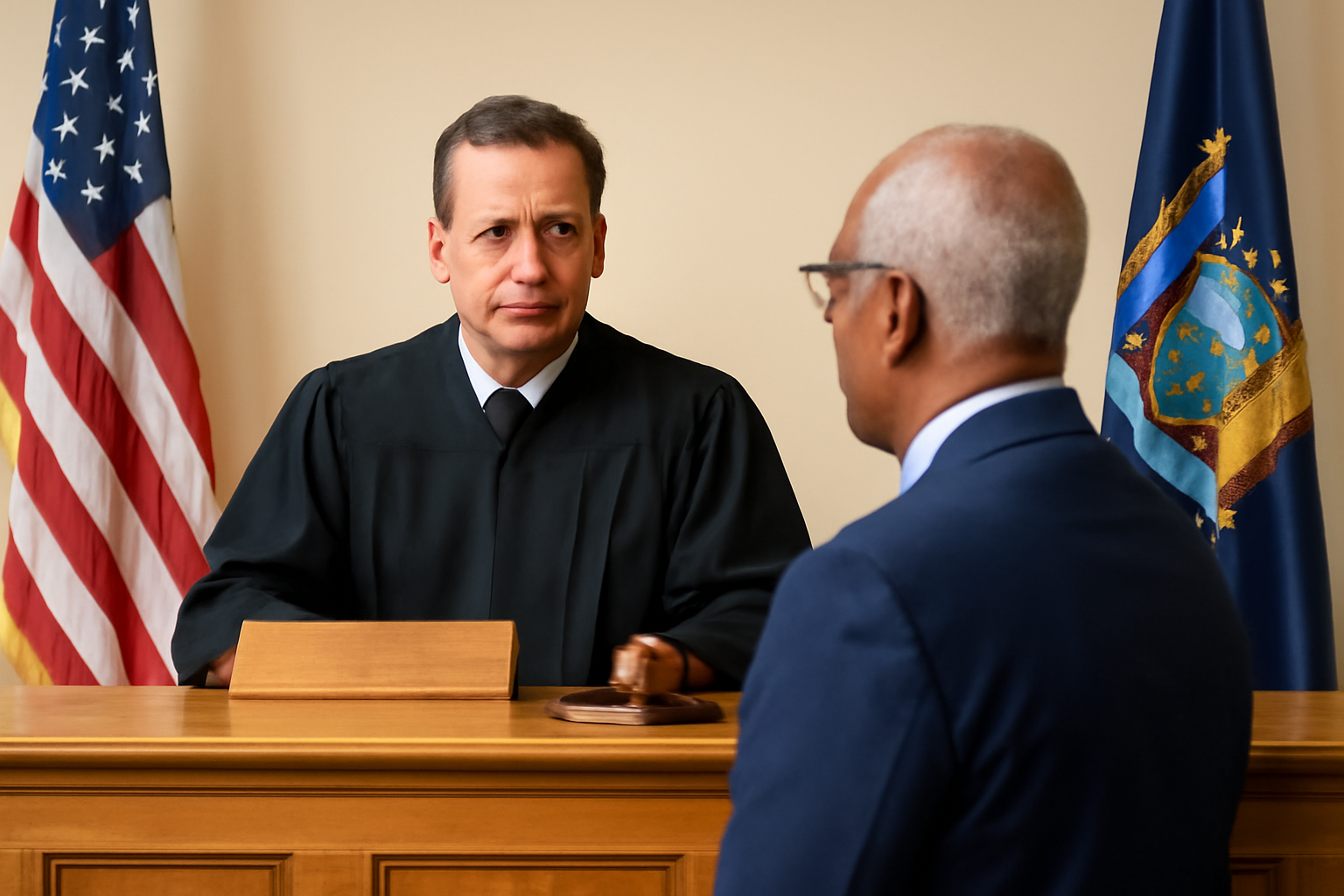
The legal landscape for transgender athletes in New York has taken a significant turn as a state court decided not to intervene in Nassau County's new sports regulations. This decision has sparked a wide range of reactions from advocates, athletes, and community members, highlighting the complex and often contentious nature of policies affecting transgender individuals in sports.
Background and Context
In recent years, the participation of transgender athletes in sports has become a hotly debated topic across the United States. The debate centers on the balance between ensuring fair competition and upholding the rights of transgender individuals to participate in sports consistent with their gender identity. Nassau County's law, which restricts transgender athletes from competing in certain school sports, was introduced amid this national conversation.
Proponents of the law argue that it is necessary to maintain a level playing field in competitive sports, claiming that transgender women and girls may have inherent physical advantages. Critics, however, view the legislation as discriminatory, arguing that it unfairly targets transgender athletes and excludes them from opportunities to engage fully in school sports.
The Court's Decision
In a recent ruling, the New York state court opted not to block the implementation of Nassau County's law, allowing it to remain in effect. The court's decision was based on several legal and procedural considerations, though it did not fully address the broader ethical and social implications of the law.
The ruling has been met with disappointment from many LGBTQ+ advocates who had hoped the court would recognize what they see as the law's discriminatory impact. "This decision is a setback for equality," said one advocate, emphasizing the ongoing struggle for transgender rights in various aspects of public life. "It sends a message that transgender youth are not welcome or valued in sports," they added.
Community Reactions
The reactions to the court's decision have been mixed. Supporters of the law have praised the ruling, viewing it as a necessary measure to protect the integrity of women's sports. "This is about fairness," said a proponent of the law. "We need to ensure that all students have a fair chance to compete and succeed."
On the other hand, opponents have expressed concern over the implications of the decision, warning that it sets a troubling precedent. "This law goes against the very principles of inclusion and acceptance that we strive for," said a local parent of a transgender student. "Our children deserve to participate in sports without fear of discrimination."
Looking Ahead
While the court's decision is a significant development, the conversation around transgender athletes in sports is far from over. Advocates are continuing to explore legal avenues to challenge the law and are calling for increased awareness and education on issues related to transgender inclusion.
The broader societal implications of this ruling are also being examined. Many argue that such laws and decisions reflect deeper issues of prejudice and misunderstanding about transgender people. There is a growing call for more dialogue and research to better understand how to balance fairness in sports with the rights of all athletes to participate.
Furthermore, this case is likely to influence similar legal and legislative battles across the country. As more states consider introducing or have already implemented similar laws, the outcomes of these cases will be closely monitored by both proponents and opponents of such measures.
In conclusion, the decision by the New York state court to uphold Nassau County's sports law marks a critical juncture in the ongoing debate over transgender athletes' rights. It underscores the need for continued advocacy, dialogue, and education to ensure that all athletes are treated with dignity and respect. As this issue continues to evolve, it is imperative that communities work together to find solutions that honor the rights and identities of all individuals.
As we watch these developments unfold, it is crucial to remain informed and engaged in the conversation, supporting efforts that promote inclusivity and equality for transgender athletes everywhere.
Related Posts
Triumphant Trans Woman Wins Legal Battle and Inspires Others to Stand Up for Their Rights
Breaking new ground: a landmark victory in transgender rights After battling in courtrooms and enduring endless challenges, Diana Portillo, a transgender woman, has secured a monumental victory in her decade-long fight against workplace discrimination. The result? Nearly $1 million awarded in a historic settlement. But this isn't just a win on paper—it represents a powerful precedent in combati [...]
Pride Month in Latin America: Protests and Demands for Equality
**Celebrating Pride and advocating LGBTQ+ rights in Latin America** Pride Month in Latin America was a lively mix where celebration met activism. Communities united, not just throwing a party but making a stand—demanding equality and pushing governments toward better protection and rights recognition. Throughout Latin America, pride events erupted in marches and cultural displays, each with a c [...]
Transgender Erasure Actions Implemented by National Park Service
```html Trump administration's impact on national park service and transgender recognition The Trump administration made notable moves in undermining transgender representation, which included directing agencies like National Park Service not include "T" and "Q" when they refered “LGBTQ” in any official communication. This move seems part a broader plan by this administration aimed at reducin [...]